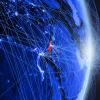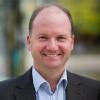IIASA is proud to host the 2023 cohort of its Young Scientists Summer Program, consisting of 50 PhD students representing 30 nationalities from all over the world.
IIASA aims to provide early-career researchers with opportunities for collaboration and the most comprehensive systems analysis training possible to help prepare the next generation of scientists to address current and future challenges that are tangled in interconnected systems.
True to this cause, the annual Young Scientists Summer Program (YSPP) enables early-career researchers to learn from the best. During this highly ranked summer program, talented young PhD students travel to Laxenburg, Austria to work hand in hand with IIASA researchers and staff on developing their projects, which have the potential to make a substantial contribution to finding solutions to pressing global issues.
In the first week of June, the fellows received an overview of the research currently being undertaken across the various IIASA Research Programs, and each fellow had the opportunity to introduce the project they will be working on over the course of the summer. With the guidance of one or more mentors at the institute, the program participants will develop their projects and share regular updates on their progress throughout the summer. The YSSP’s emphasis on collaboration and community extends beyond research work. The fellows also benefit from various social events and activities incorporated into the program. Recently the fellows did a guided hike into the beautiful Austrian countryside and viewed the Semmering Railway, a UNESCO world heritage site.
Established in 1977, the YSSP has provided a platform for about 2600 fellows to date, building a new generation of scientists who carry forward and grow the reach of the institute’s dedication to the international, interdisciplinary, and applied systems approach to research into their own work and organizations.
Here is what some of the fellows and the program team had to say:
Caesar Agula, Ghana, Economic Frontiers Program
“I had an exceptional experience throughout these first few weeks at IIASA. I am particularly thrilled with the working environment. As a young scientist, IIASA not only gave me a place to work but also created a collegial atmosphere that helped me feel at home.
Generally, I hope to gain the required experience to advance my current and future research to a policy level and expand the audience I can reach with my research findings.”
Huiying Ye, China, Advancing Systems Analysis Program
“Very impressive! It brings us (YSSPers) together and helps us become acquainted with one another quickly. I am extremely grateful to the IIASA YSSP team for their generous assistance, always ready to lend a hand whenever and wherever needed. They swiftly guided me through the facilities to the research group. I feel right at home here.
Firstly, I am eager to learn about research practices worldwide, encompassing different approaches, methodologies, and ways of thinking. Understanding how researchers tackle different challenges will be invaluable to me. Secondly, I aspire to establish collaborative relationships with others, not only within the academic realm, but on a personal level. Cultivating connections and sharing experiences can enrich both professional and personal lives. Furthermore, I am keen on enhancing both my thesis writing and English language proficiency throughout this program."
Tanja Huber, YSSP Coordinator and Team Leader
“This is a very harmonious group, very bright and polite. I hope that after the summer everyone will be going home with great memories, a publishable scientific paper, promising professional connections, and new friendships that will last for life”.
Fabian Wagner, Capacity Development and Training Dean and Principal Research Scholar
“I have met each and every one of them and I found without exception that they are really enthusiastic about their work and about meeting people from other countries and disciplines. In this early phase of the program, it already appears that the communication within this cohort is particularly good, they have good vibes and they seem to cherish each other’s company! On my corridor, I can hear a lot of laughing!
First and foremost, I hope they gain some research experience in a highly interdisciplinary and international setting, making enough progress to get a draft publication ready by the end of the summer, thereby making a lot of progress towards obtaining a PhD degree. This is no small feat. But I am actually hoping for more, namely, that this program becomes an intellectual and emotional anchor for the rest of their lives and that after they leave the program IIASA stays with them, and conversely that they stay part of the IIASA family. I particularly hope they gain an appreciation of the systems approach that we value here at IIASA, and which we believe is the basis for a rational discourse of the many challenges ahead of us. Thus, I not only hope that we can give them skills but also a more beautiful mind.”
Further reads
Abstracts and bio-sketches of 2023 YSSP participants
To learn more about the program and application timelines, visit: https://iiasa.ac.at/early-career/yssp
News

23 July 2024
Introducing the IIASA Justice Framework

16 July 2024
Mapping global rooftop growth for sustainable energy and urban planning

08 March 2024

